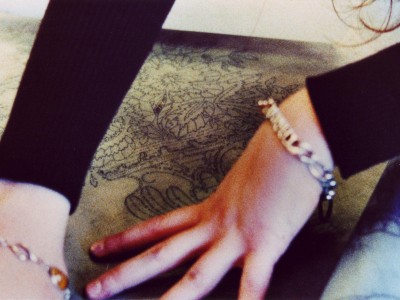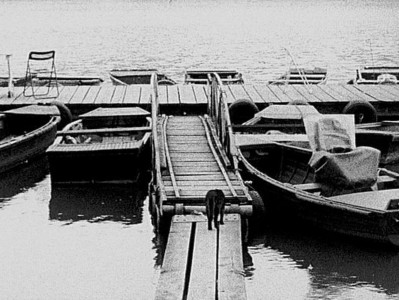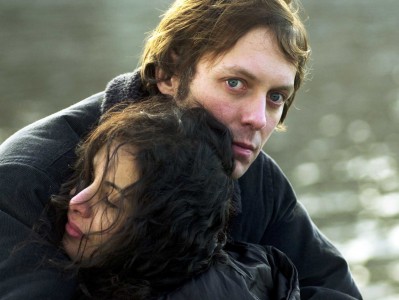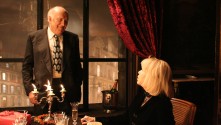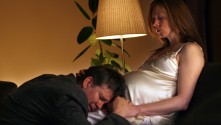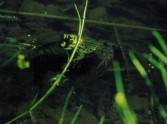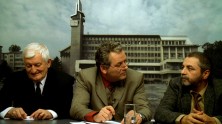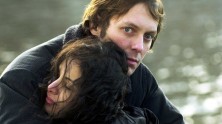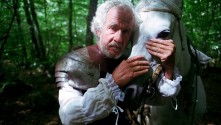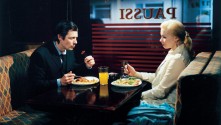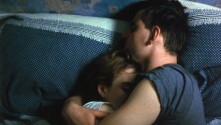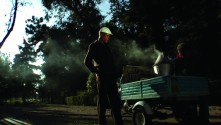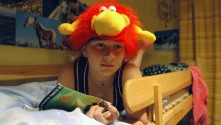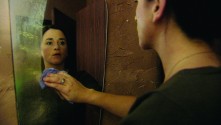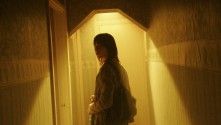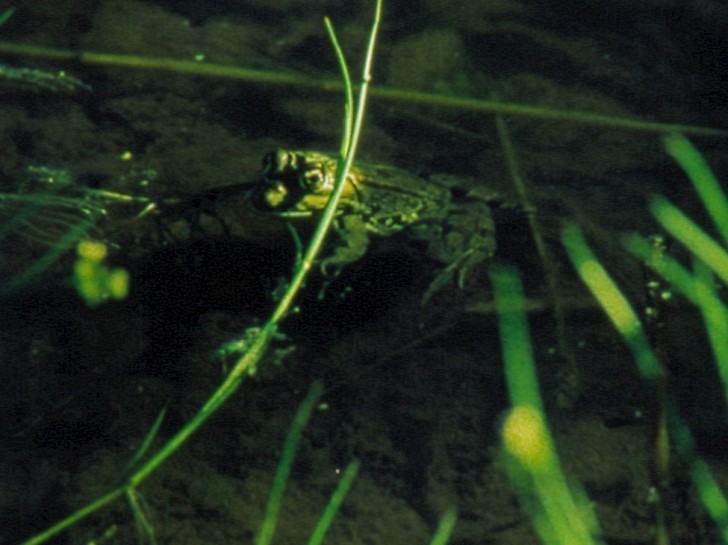
In Visible Evidence
In the eight days before two cows drank the eponymous habitat, Lowder focused her camera on a little pond and the creatures who live in it. Recording frogs as they scratch their eyes, jump around, and provoke the in-the-camera-editing, Habitat attempts to render visible and enter into the temporal dimension of an unknowable world.
In the form of folds: separate areas of a piece of fabric come together at new points of contact and angles. Individual sections come to the fore while others remain hidden. In motion, the surface of a cloth gleams like the delicate impression of light in film. The French experience includes forms of discovered, singled out or artificially employed nature. And parallel to this, the search for the natural in art. Leaves and flowers appear as if drawn. One’s own hand becomes an object, a figure. How are the leaves arranged on a tree? It is a culture of the aesthetic, of that which refers to perception in its most direct sense. – HS
-
Block
Directed by Emily Richardson.
UK, 2005, 16mm, color, 12 min.
Block examines the life of a 1960s tower block in South London. “Eschewing ‘documentary’ interviews with residents for a night-and-day time-lapse tableau of the building's formidable architecture, it is a powerfully modulated and intensely rhythmic piece” (Matthew Tempest).
-
Object Studies
Directed by Nicky Hamlyn.
UK, 2005, 16mm, color, silent, 17 min.
Object Studies is organised around a colour scheme based loosely on the hues of the colour temperature scale: brown, red, orange, yellow, green, blue, white. Time-lapse, interlaced, single-frame sequences and lap-dissolves were deployed to explore density, translucency and the interactions of different kinds of cast-shadows.
Three years of the Kopaszi dam under a demolition order. The sunlight spindle camera, the scratches and flashes of the expired raw material and the cut in the camera breathe together with nature and the people living there. The film’s sound material is an orchestra’s rehearsal in which a brass band is trying to play the Egmont overture.

